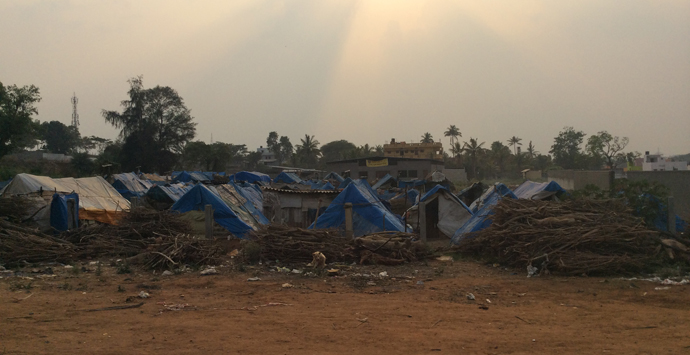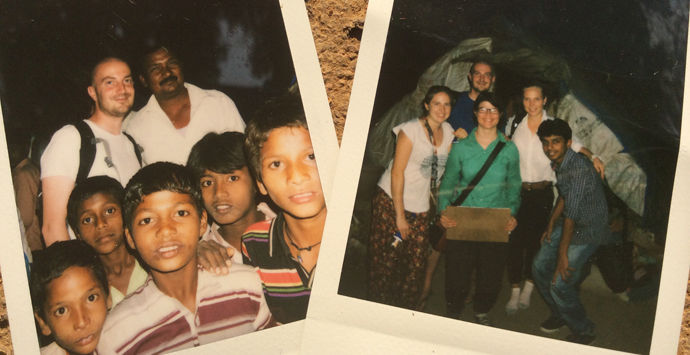Emotional connections, unforgettable experiences
Today I completed my first evaluative story, an experience I will never forget.
As a team, we visited the Additya community in south Bangalore. In comparison to other communities, it’s considered relatively small but is still home to 150 residents. The hour-long journey from Pollinate headquarters gives us time to discuss our approach on site.
Despite all the prep work and piloting, I feel a mixture of nerves and excitement. How can I develop an emotional connection with the participant? How will I steer the conversation to yield relevant information if we deviate from the planned approach?
As always, our arrival into the community attracts a lot of attention and initially we take the opportunity to get some photos for our personal collections before scoping out the community to select our participants as planned.
It’s not long before we encounter a Pollinate customer who purchased a light six months ago; he has a family of four and his two children are attending school. I shake his hand and introduce myself in kannada, the local dialect. He smiles and invites us inside to meet his family.
Once seated on a rug laid out for us, I am surprised at how spacious his small, well-kept home feels. Pots and pans are arranged neatly on a small wooden shelf along with a small mirror and bowl containing a bar of soap. An assortment of blankets are folded and stacked behind us and a solar light hangs from the wooden frame above us. The home is lit adequately with a soft tone that further contributes to the calming ambience.
We talk through a translator and I explain that I am here to listen to his story and provide him with a platform to share it with the world. While I cannot immediately understand his response, the shy smile and gentle “Indian headshake” ignites an emotional connection within me and, I hope, him too.
His name is Sunil, 34 years old and originally from the rural Andhra Prakesh region east of Bangalore. Born to farming parents, he moved to the city with his wife and children in search of better working opportunities, a common story among slum residents. He and his wife both work six days a week in often dangerous construction jobs for a combined income of around 2500 rupees in order to provide food and education for their two young children.
When the conversation moves towards the solar light above us, Sunil has a lot to say. Firstly he explains how his old kerosene lamp would fill the home with smoke each night, and that since installing the solar light his children have stopped coughing. Being able to leave the light on all night also makes his family feel safer, particularly given cobra snakes and rats are regular threats in his community.
The story was completed with a demonstration from Sunil about how the light was used for preparing food and charging his mobile phone. We took Polaroid photos and shared them with his family for souvenirs. The smiles we exchanged spoke clearly across the language barriers as we expressed sincere gratitude to each other.
Back at Pollinate headquarters that evening, the group discusses the day’s highs and lows over dinner. I talk about the emotional connection I had made throughout the first story and the positive impacts the solar light had made. I see immediately that co-founder Emma is over-joyed, as she sees another example of how Pollinate Energy is inspiring not only to the local communities it visits, but for the Young Professionals helping it achieve its goals.
Until next time,
Chris








